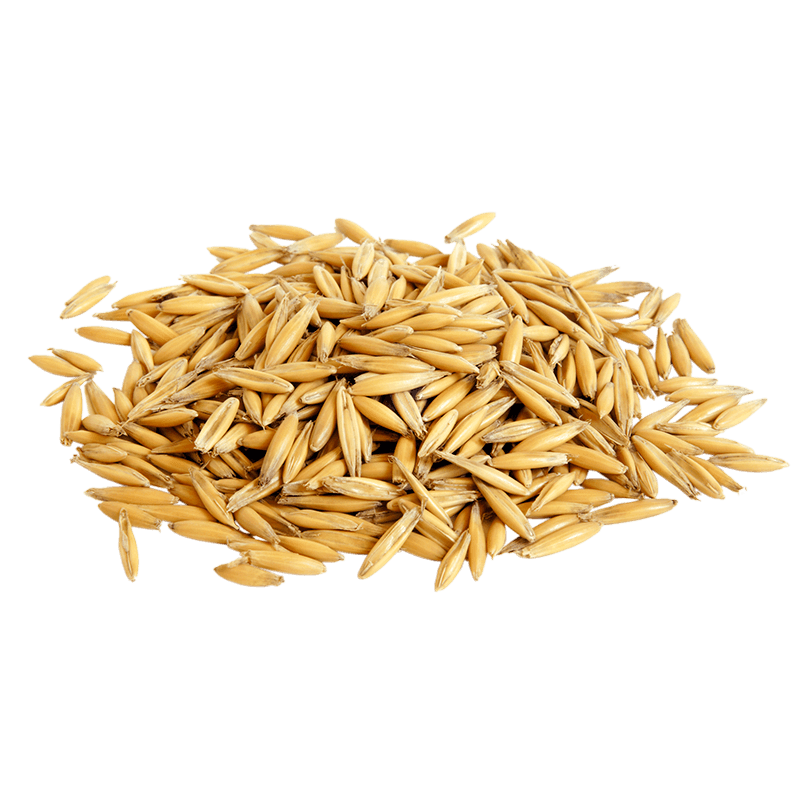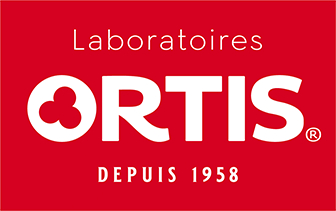
Oats
Latin name
Origin
Used part
Active components
Starch: carbohydrate content.
Fibre: regulation of the intestinal transit and protection of the intestinal mucosa
Usage
When speaking of oats, we immediately think of oat flakes. Oat flakes, obtained by heating and grinding the peeled grains, are often eaten as cereals at breakfast time, such as in muesli, for example. Previously, our ancestors consumed oats in thick gruel. The oats were heated with milk to obtain a porridge, or they were added to soup to thicken it. Naturally, oats can also be used to make bread or biscuits, and to brew beer. A cow’s milk alternative can be produced from oats. This variety of cereal does not contain any gluten and can, in principle, be eaten by those adhering to a gluten-free diet. However, the oats may be processed in a factory that also processes cereals that contain gluten. In this case, the grains may contain small quantities of gluten and consequently are not suitable for this type of diet. Oats are considered a healthy food, thanks to the presence of vitamins, minerals, unsaturated fats and specific proteins, but especially thanks to their high content in antioxidants and fibre. The polyphenols contained in oat flour, specifically avenanthramides, and polysaccharides, including beta-glucanes, have anti-inflammatory properties and can be used in the case of skin problems such as dermatoses and itching. 2,3 A scientific study has shown that this phenomenon is based on the fact that these substances inhibit the action of different anti-inflammatory markers (nFκβ, pro-inflammatory cytokines and histamine). 4,5 Oats also reduce cholesterol because they increase the production of bile, capture the cholesterol from the bile and excrete it through the stools. 6,7 Oats are also rich in insoluble fibre. Insoluble fibre regulates the intestinal transit 8-10 and the intestinal flora. 11-15
Bibliographical references
Referenties:
- Antioxidant capacity of oat (Avena sativa L.) extracts. 2. In vitro antioxidant activity and contents of phenolic and tocol antioxidants.
Emmons CL1, Peterson DM, Paul GL.
J Agric Food Chem. 1999 Dec;47(12):4894-8.
Pubmed: http://www.ncbi.nlm.nih.gov/pubmed/10606549 - Oatmeal in dermatology: a brief review.
Pazyar N, Yaghoobi R, Kazerouni A, Feily A.
Indian J Dermatol Venereol Leprol. 2012 Mar-Apr;78(2):142-5.
Pubmed: http://www.ncbi.nlm.nih.gov/pubmed/22421643 - Protective effect of oat bran extracts on human dermal fibroblast injury induced by hydrogen peroxide.
Feng B, Ma LJ, Yao JJ, Fang Y, Mei YA, Wei SM.
J Zhejiang Univ Sci B. 2013 Feb;14(2):97-105.
Pubmed: http://www.ncbi.nlm.nih.gov/pubmed/23365008 - Avenanthramides, polyphenols from oats, exhibit anti-inflammatory and anti-itch activity.
Sur R, Nigam A, Grote D, Liebel F, Southall MD.
Arch Dermatol Res. 2008 Nov;300(10):569-74.
Pubmed: http://www.ncbi.nlm.nih.gov/pubmed/18461339 - Mechanism of action and clinical benefits of colloidal oatmeal for dermatologic practice.
Cerio R1, Dohil M, Jeanine D, Magina S, Mahé E, Stratigos AJ.
J Drugs Dermatol. 2010 Sep;9(9):1116-20.
Pubmed: http://www.ncbi.nlm.nih.gov/pubmed/20865844 - Diverse effects of oats on cholesterol metabolism in C57BL/6 mice correlate with expression of hepatic bile acid-producing enzymes.
Andersson KE, Axling U, Xu J, Swärd K, Ahrné S, Molin G, Holm C, Hellstrand P.
Eur J Nutr. 2013 Oct;52(7):1755-69.
Pubmed: http://www.ncbi.nlm.nih.gov/pubmed/23262749 - Physicochemical properties of oat β-glucan influence its ability to reduce serum LDL cholesterol in humans: a randomized clinical trial.
Wolever TM1, Tosh SM, Gibbs AL, Brand-Miller J, Duncan AM, Hart V, Lamarche B, Thomson BA, Duss R, Wood PJ.
Am J Clin Nutr. 2010 Oct;92(4):723-32.
Pubmed: http://www.ncbi.nlm.nih.gov/pubmed/20660224 - Use of fiber instead of laxative treatment in a geriatric hospital to improve the wellbeing of seniors.
Sturtzel B1, Mikulits C, Gisinger C, Elmadfa I.
J Nutr Health Aging. 2009 Feb;13(2):136-9.
Pubmed: http://www.ncbi.nlm.nih.gov/pubmed/19214342 - The status of vitamins B6, B12, folate, and of homocysteine in geriatric home residents receiving laxatives or dietary fiber.
Sturtzel B1, Dietrich A, Wagner KH, Gisinger C, Elmadfa I.
J Nutr Health Aging. 2010 Mar;14(3):219-23.
Pubmed: http://www.ncbi.nlm.nih.gov/pubmed/20191257 - Mechanisms by which wheat bran and oat bran increase stool weight in humans.
Chen HL1, Haack VS, Janecky CW, Vollendorf NW, Marlett JA.
Am J Clin Nutr. 1998 Sep;68(3):711-9.
Pubmed: http://www.ncbi.nlm.nih.gov/pubmed/9734752
11 . Oat β-glucan increased ATPases activity and energy charge in small intestine of rats.
Zhang PP1, Hu XZ, Zhen HM, Xu C, Fan MT.
J Agric Food Chem. 2012 Oct 3;60(39):9822-7.
Pubmed: http://www.ncbi.nlm.nih.gov/pubmed/22970825 - Formation of phenolic microbial metabolites and short-chain fatty acids from rye, wheat, and oat bran and their fractions in the metabolical in vitro colon model.
Nordlund E1, Aura AM, Mattila I, Kössö T, Rouau X, Poutanen K.
J Agric Food Chem. 2012 Aug 22;60(33):8134-45.
Pubmed: http://www.ncbi.nlm.nih.gov/pubmed/22731123 - Wholegrain oat-based cereals have prebiotic potential and low glycaemic index.
Connolly ML1, Tuohy KM, Lovegrove JA.
Br J Nutr. 2012 Dec 28;108(12):2198-206
Pubmed: http://www.ncbi.nlm.nih.gov/pubmed/22360862 - Dietary fibre-rich oat-based products affect serum lipids, microbiota, formation of short-chain fatty acids and steroids in rats.
Drzikova B1, Dongowski G, Gebhardt E.
Br J Nutr. 2005 Dec;94(6):1012-25.
Pubmed: http://www.ncbi.nlm.nih.gov/pubmed/16351781
15 . Effects of oat β-glucan and barley β-glucan on fecal characteristics, intestinal microflora, and intestinal bacterial metabolites in rats.
Shen RL, Dang XY, Dong JL, Hu XZ.
J Agric Food Chem. 2012 Nov 14;60(45):11301-8.
Pubmed: http://www.ncbi.nlm.nih.gov/pubmed/23113683
The health claims that feature on our website in relation to the plants contained in our products are compliant with the list of health claims awaiting final assessment by the Community authorities (cf. website of the European Commission: http://ec.europa.eu/nuhclaims/). However, they may be subject to modification following their assessment by the national competent authorities.
The health claims relating to other nutrients or substances contained in our products that feature on our site are compliant with Regulation No. 432/2012 of the Commission of 16 May 2012 which establishes a list of authorised health claims authorised in relation to food products, other than those in reference to the reduction of the risk of disease as well as community-based development and child health (cf. website of the European Commission: http://ec.europa.eu/nuhclaims/).
 Belgium
Belgium
 Belgique
Belgique  België
België  France
France  Italia
Italia  Portugal
Portugal  España
España  United Kingdom
United Kingdom  Κύπρος
Κύπρος 